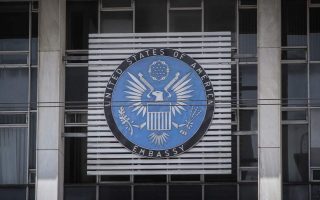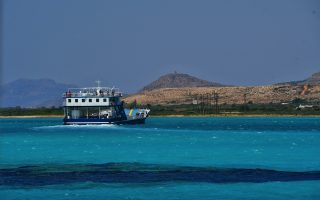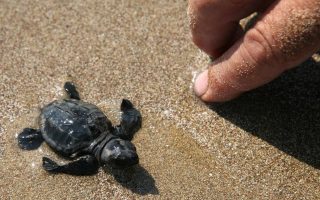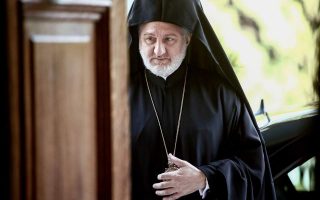An enduring Greek-Turkish bond
Late last month, the community of Palaia (Old) Fokaia, some 35 kilometers from Athens in Eastern Attica, held a memorial for the victims of the Asia Minor Disaster. The somber ceremony left no one unmoved: The men, women and children are the final link in a chain connecting the present to something that is forever gone, the last generations to hear the old-timers narrate stories of the homeland. The people of Palaia Fokaia are but one tile in the grand human mosaic that was violently wrenched from Ionia during the 20th century population exchanges between Greece and Turkey, settling mainly around Attica and Halkida.
What many people do not know, however, is that the Greek residents of the Asia Minor seaside town (built on the site of Ancient Phocaea, whose residents went off to establish modern-day Marseilles in 600 BC) were not just persecuted in 1922, but also in 1914. That incident was one of the earliest manifestations of Turkish ambitions to uproot the Greeks from Ionia, with the aim of seizing their properties and taking over their businesses. It was, in many respects, a dress rehearsal for the events that would follow against the Armenians and in the ousting of the Greeks from Smyrna and other parts of Asia Minor.
The residents of what was then Fokaia became refugees twice; they left in 1914 and returned shortly after, only to leave again in 1922 and 1923. The people who survived these persecutions did not like to talk about the events that unfolded.
“When they came to Greece, they were just trying to survive and get back on their feet,” says Zacharo Frantzeskou, the granddaughter of Apostolos Frantzekos, the only shipbuilder in the town. “I remember him saying that he could lift the entire Earth if it had a handle. That’s the kind of guts they had; that’s why they survived all the strife that came their way.”
As they crossed the Aegean Sea to Greece, most brought a few treasured items with them; all of them, though, brought a different way of life, different habits, foods and customs, as well as their principles and values, and a particular sense of patriotism.
I met Zacharo Frantzeskou and other members of the community at the Palaia Fokaia Cultural Center. All were happy to share stories of the old country and memories of their forebears who lived there.
“In 1992, we decided as a community to get in touch with the Turkish mayor of Foca [as Fokaia is now known] at the time, Nihat Dirim. We were hesitant when we called him and said that we would like to visit the land of our forefathers, but he surprised us with his response: ‘I’ve been waiting for you to call! It took you too long!’ So, we organized a trip and went to see the place for the first time. It was an overwhelming experience,” says Dimitris Mageiras, a benefactor and president of the association. His parents came from Turkey to Greece in 1923 and his uncle, Theodoris, who still has a lot of memories from that time, served as guide on the trip.
Thanks to his help and that of the Turks of Foca, the people of Palaia Fokaia were able to locate many of their family homes, fields and other landmarks. “The Turks and the Greeks had a very good relationship at the time, and when we went in 1992, we received a marvelous welcome. We have kept in touch ever since and some of them have also visited us here, in Attica,” says Mageiras.
I was a bit surprised to hear people whose families were chased and killed to be speaking with such fondness of Greece’s Turkish neighbors, but as one of them stressed: “The people are one thing; the leadership is another.”





